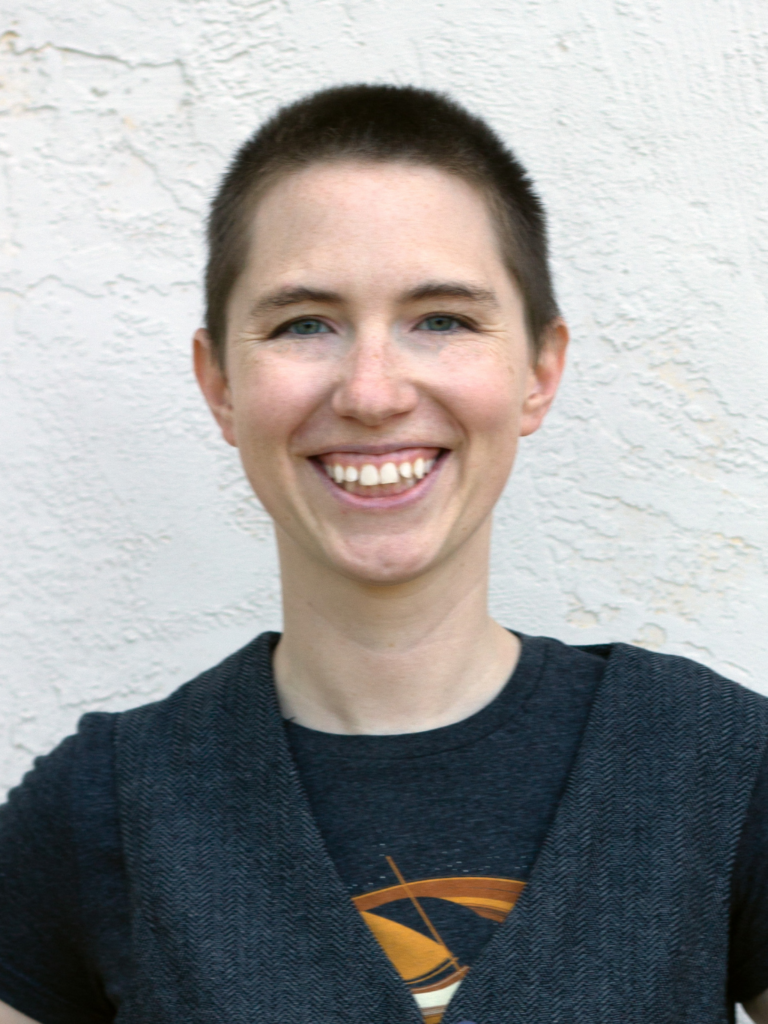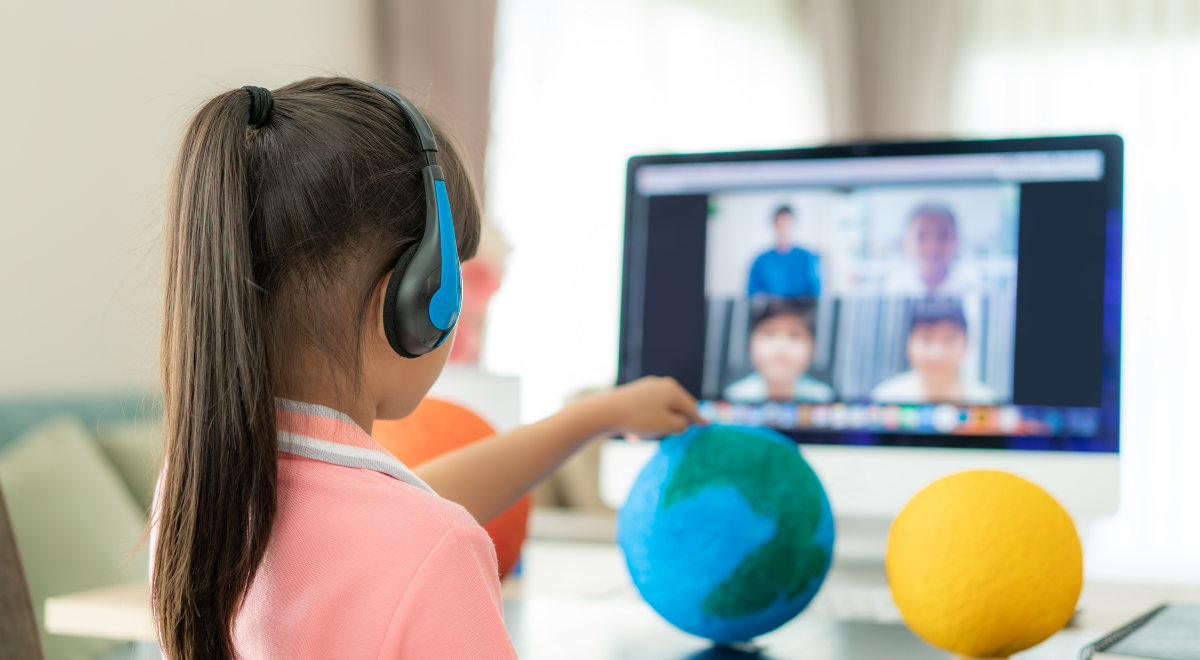Do you teach a topic that learners are often passionate about? Consider leading a social club for those who can’t get enough time discussing and exploring their interest, whether that’s music, video games, or, in this case, space.
We talked to educator Arwen Hubbard, who has expertise in space studies and the environment and runs a number of clubs focused on niche areas like space, constellations, and science discussions. Arwen lists her clubs in the ongoing class format on Outschool.

What sets Arwen’s classes and clubs apart is that she offers classes online that young people might not have access to otherwise but are very interested in. A couple examples are her classes on Planetary Volcanism: Volcanoes on Earth and Space for 9- to 14-year-olds and Design Your Own Mars Colony for 8- to -12-year-olds. She also teaches more traditional academic subjects, such as Foundations in Physics, but for 8- to 12-year-olds.
“I think that’s one of the strengths of a platform like Outschool is it can connect students all over the world… with instructors who can teach those things,” she said.
“There’s no reason that someone who’s 10 shouldn’t be able to learn about entomology or shouldn’t be able to learn about neutron stars or things like that.”
Reach more students with online clubs
Arwen shared her approach to make virtual clubs a draw for learners who want to dig deep into a subject.
Give learners more agency
Clubs can be more learner directed than classes often are, Arwen says. “In a traditional class, I might go through as the instructor and say, ‘Okay, what knowledge base do we need to build to understand this topic?’“
In clubs, Arwen is free to ask learners what they are interested in and want to learn about. “Then I will prepare something for the next week,” she says, “some slides and little video clips, and I’ll do some research if that’s something I don’t know about.”
Yes, the learners do come up with questions that Arwen doesn’t immediately know the answer to, even after almost two decades of studying areas like planetary science.
“There’s this sense of teamwork together about it,” she says. “Even though I’m doing a lot of the legwork of finding out the information and translating it for them, it’s ‘let’s learn together as a group.’ “
In science, Arwen says, it’s important to be open and understand that you won’t know everything about a topic. So she’s comfortable modeling the process of staying open to learning new things.
Offer an opportunity to pursue a special interest
Arwen shared that many of the learners who enroll in her clubs and classes are likely neurodivergent. For some of them, outer space may be a “special interest.” In fact, space is Arwen’s own special interest.
Sometimes it’s helpful to know if someone is neurodivergent, Arwen says, and some parents may share that about their child. However, whether neurodivergent or neurotypical, the needs of individual learners are what’s important to Arwen.
“My job as the educator is to do my best to understand them and to help them learn in a way that they feel empowered, in a way that they feel respected and excited,” she says.
Guide your virtual clubs to welcome all
Arwen also talked about strategies that work for her in running clubs that are popular on Outschool.

Use creative tools to spark online discussion
In some of her clubs, Arwen gives learners the opportunity to draw during the last part of the meeting time. She finds this helps to stimulate class discussion. “Sometimes it can be hard to say, ‘Okay, everybody, talk about what you want,’ and then you go, ‘I have no idea what to talk about,’ “ Arwen says.
So maybe in the space club someone will draw the rings of Saturn and ask another person what they’re drawing. With that, the conversation begins.
Learners who are persistent can find a vast array of information on the internet about topics that interest them, Arwen says. “But what matters, I think, is that back and forth, is being able to bounce the idea off and go, ‘But wait, what about? Or how does that connect to that?’ “
Notice student cues to encourage conversation
Arwen prefers to keep her classes and clubs on the smaller side—say 5 to 7 learners—so she can observe learners and give everyone a chance to participate.
“If I can get five, that’s the sweet spot because that allows for everyone to participate,” she says. “But also no one has to be on the spot and feel like they have to when they want to step back.”
Arwen pays attention to learner preferences: Does a student like to be called on or does that make that person uncomfortable? She also leaves chat available for those who tend to choose that over sharing verbally.
Arwen adjusts the way she guides discussions in clubs, depending on each club and group of learners:
- In her discussion club centered on Scientific American articles, sometimes she hears a question from a learner and encourages them to pose it to the group.
- In other clubs, learners may not be as comfortable talking directly with each other, and Arwen will act as a go-between, listening to the question and then asking the group. In those same clubs, someone might naturally be comfortable speaking to the other learners.

Check student knowledge to keep everyone engaged
In clubs and classes in the ongoing class format, learners can attend meeting dates that work for them. As new learners enter the group, Arwen is mindful of each person’s knowledge base. She asks a few questions to get an idea of people’s knowledge levels about a topic and pays attention to changing group dynamics.
“Every single group of people is going to be different,” she says, “and you have to check in and see, ‘What are they understanding?’ and be ready and willing to pivot to address what they need to understand to be able to grab that concept.”
For Arwen, observing what works and making adjustments, whether it’s new times for classes or clubs, new class formats, or different participation styles, are all part of teaching online.
What’s non-negotiable for her is teaching what’s she passionate about. And that’s a draw for her students who also love learning about space, constellations, science fiction, or all of the above.
Check out the video below to see the full interview with Arwen.

